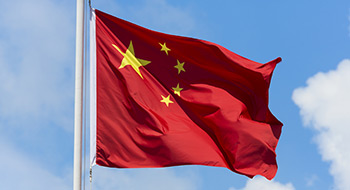

Even though China’s growth prospects are in question, there’s a huge amount of growth in electronic commerce that’s creating investment opportunities.
Companies that will benefit from digital and electronic commerce innovation in China include big names such as Alibaba, Baidu and Tencent, says Kenrick Leung, director of investment for greater China equities at Amundi in Hong Kong. He manages the Renaissance China Plus fund.
As Leung explains, “What e-commerce does — and what these Internet companies do — is cut out the middleman. They make things more streamlined and improve productivity. You can now marry businesses with end consumers by cutting out many additional layers.”
Read: What’s the prognosis for investing in China?
Further, China’s focus on globalization will enable its digital companies to improve their reach to overseas vendors and customers, says Leung. “A lot of these companies are very interesting at this point. They’ll be direct beneficiaries of this trend toward innovation and global trade.”
Another factor is China’s commitment to fostering innovation over the long term. “China has been trying to acquire as much technology as possible to go from a low-end assembler of cheap consumer goods to an exporter, or manufacturer, of value-added goods,” he adds.
China is also working to co-ordinate its efforts with its domestic policy. Recently, China’s state council was given specific targets for science and technology progress; the government wants knowledge-based, intensive services to contribute up to 20 per cent of the GDP by 2020, up from 15 per cent currently.
China is also advocating for digital growth globally. The 11th G20 summit that took place in China this year focused on promoting interconnected global growth and innovation, as well as a multilateral trading system.
Issues such as the current anti-globalization sentiment are a big factor in the the call for unified economic growth, says Leung.
Read: CPPIB to offer expertise to China on challenges of an aging population
“There’s a lot of potential reversal of trade as it [has] happened under the World Trade Organization format,” he says, noting China wants to “continue with the current system of trading in terms of exports and globalization.”
China would also like to see more governments working on the co-ordination of fiscal and monetary policy, with a focus on fiscal stimulus and structural reform. Leung notes China sees that as a way to improve the productivity of the global economy. He adds that domestically, China is co-ordinating its fiscal and monetary policy.
This article originally appeared on the website of Benefits Canada‘s companion publication, advisor.ca.
